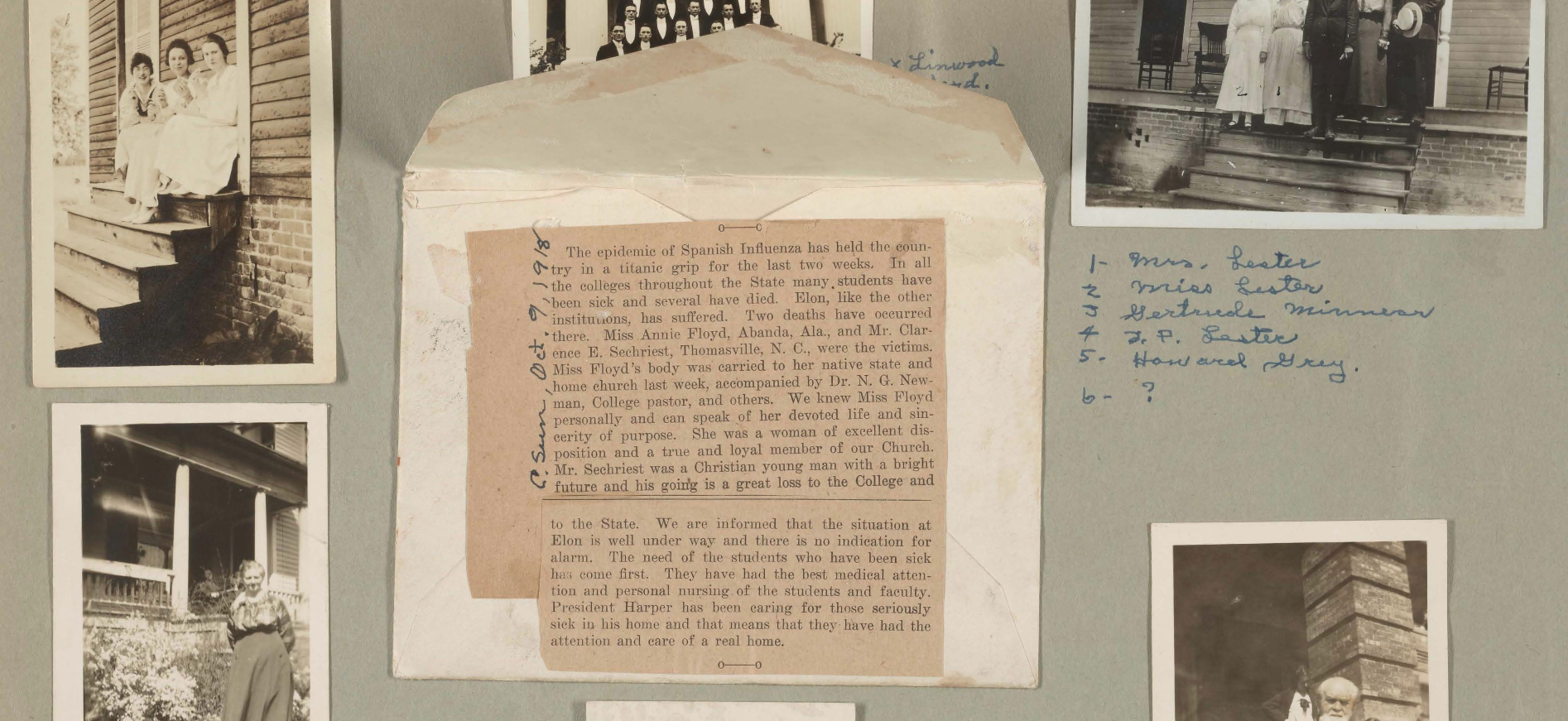
Page 31 of Annie Gordon Floyd’s scrapbook, a student at Elon College during the influenza pandemic of 1918. The newspaper clipping is Annie’s obitual; she died of influenza.
Here at the University of North Carolina, Chapel Hill, as well as across the globe, graduating students are leaving their school years behind without the normal pomp and circumstance. After years of late-night study sessions and racing to beat the assignment submission clock on Sakai, who would have thought that a pandemic would get between them and their walk across the commencement stage? While achieving a degree is a reason to celebrate regardless of location, perhaps 2020 graduates and all self-isolating students can relate to the experiences of an older group of students- those affected by the 1918 influenza pandemic.
Cutting through the spring of 1918 to 1919, the influenza pandemic was a worldwide health issue not unlike today. In North Carolina, industries were halted and quarantine was enacted (and extended). Universities, too, established their own versions of quarantine. Thanks to the institutions we work with here at DigitalNC, we have digitized yearbooks, scrapbooks, and college publications that offer a glimpse into the thoughts of students during this equally tumultuous time in history.
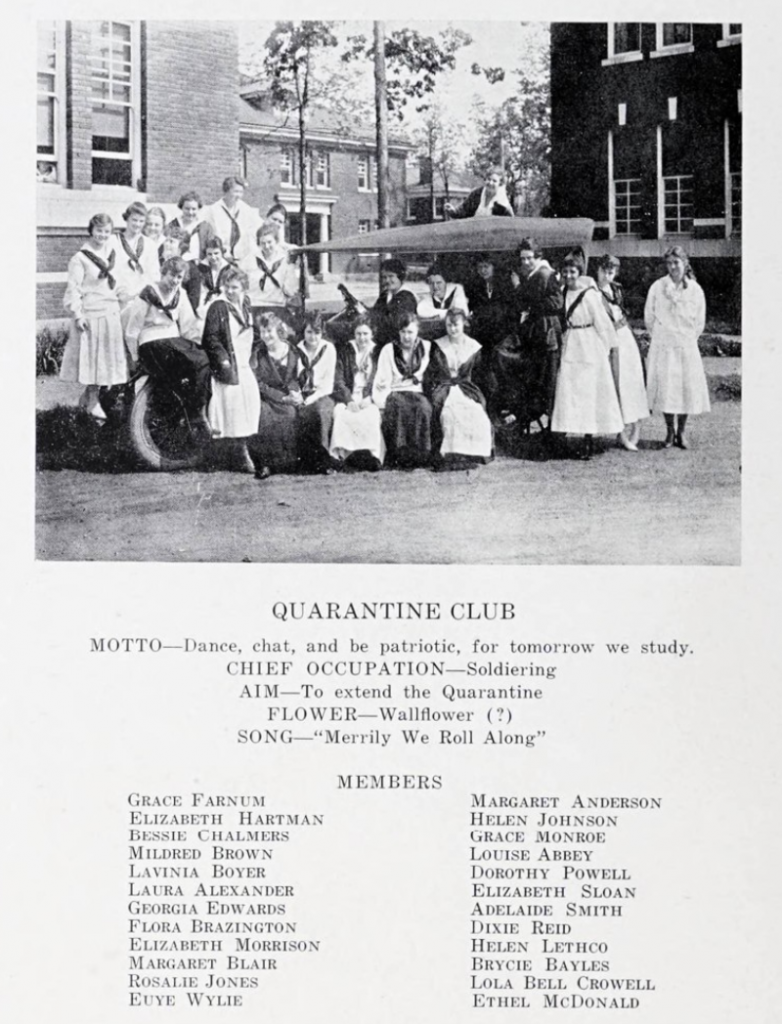
Quarantine Club, The Edelweiss, 1918.
Quarantine was enacted in fits and spurts on campuses across North Carolina between 1918 and 1920. As is evident by yearbook social calendars, measures varied across universities. One campus quarantined through most of November 1918 while others were still starting up quarantine periods in February and March 1920.
Campus clubs have a dedicated slice of yearbook real estate during this time and the influenza directly impacted their activities. As the pandemic coincided with the last days of World War I, Student Army Training Corps (S.A.T.C.) were a part of many universities. The S.A.T.C. at Meredith College recounts their quarantine movements that saved faculty and students from “nervous prostration”. UNC’s S.A.T.C. found the flu less inspiring. Other students responded by creating clubs. At Queens College, Quarantine Club, seen left, first began in 1918 with the aim “to extend the quarantine”. Later, in 1920, the club edited their name to simply “Flu” Club, as seen below.
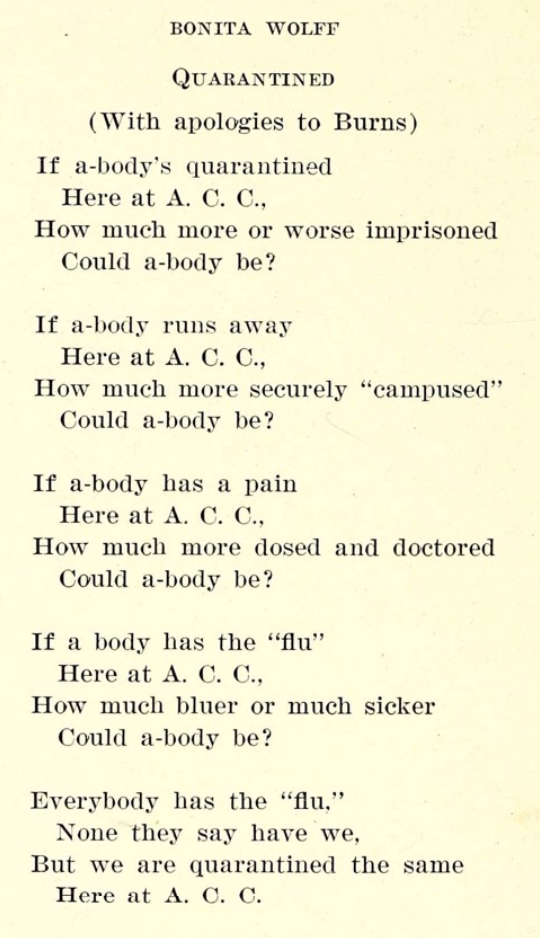
“Quarantined” by Bonita Wolff, The Radiant, 1918.
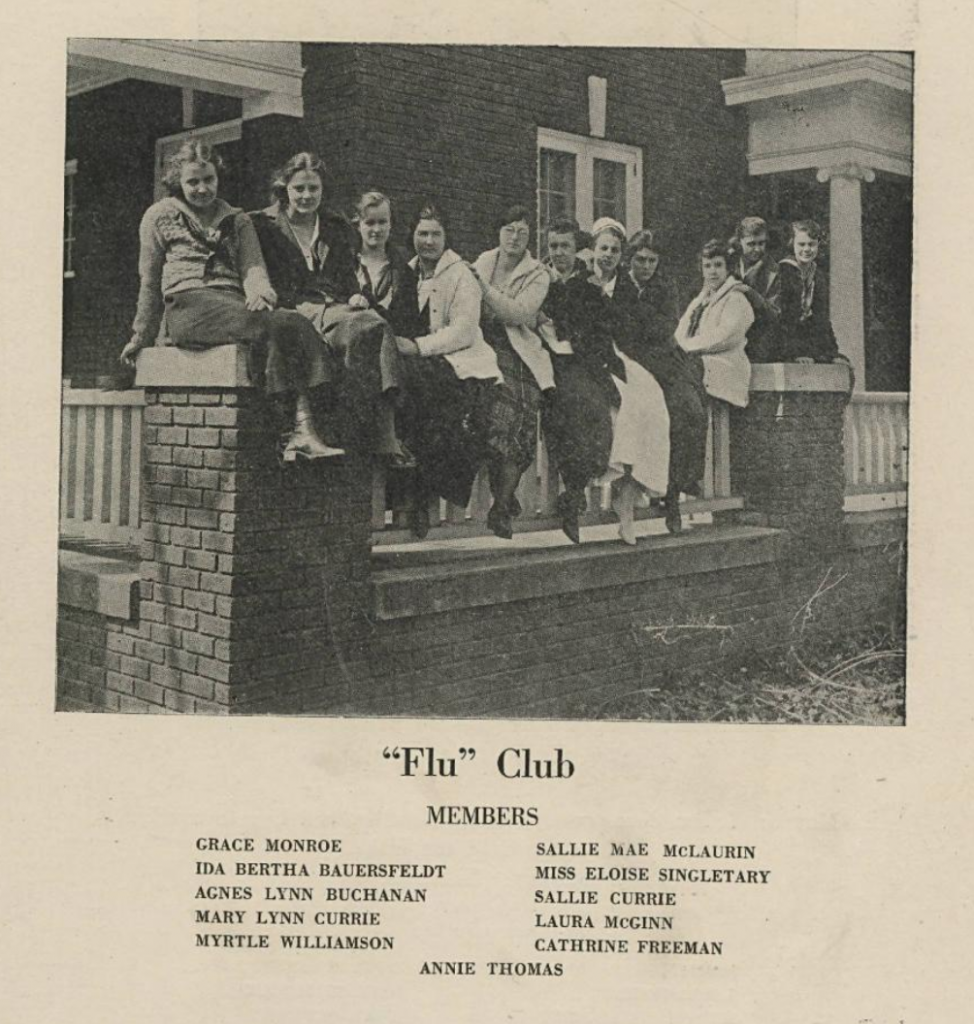
“Flu” Club, Wise and Otherwise, 1920.
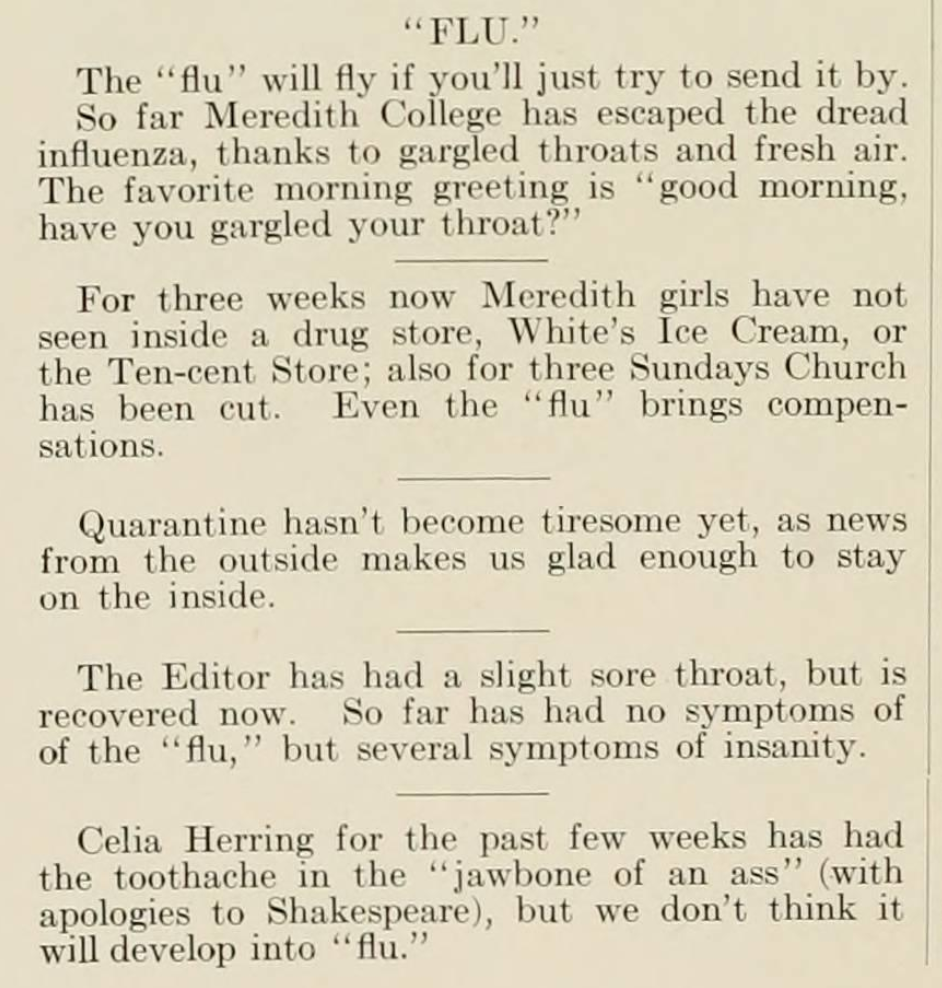
“Flu” section of the Meredith News and Distributor by French Haynes, Oak Leaves, 1919.
Students also utilized their yearbooks to creatively vent frustrations. In 1918, Atlantic Christian College students were under quarantine from February 6th to the 27th. Student Bonita Wolff penned several poems for The Radiant, including “Quarantined”, shown above. Another funny quarantine themed poem can be found in the advertisement section of the 1920 edition of St. Mary’s Muse.
Meredith College graduate French Haynes embedded influenza jokes throughout the satirical Meredith News and Distributor, shown to the right. And in 1920, Elizabeth Gaskins spotted a deficiency in her local health care system, due in part to the influenza, and argued for the creation of a local hospital in the Greenville High School yearbook The Tau.
If anything, these yearbooks serve as a reminder that this moment is not permanent. Comparing pandemics may be apples to oranges, especially when one student called quarantine “an awful bore” in a college that was only under quarantine for a month at a time, but Mary Reed Buchanan, member of the 1919 graduating class of the women’s college Peace Institute, offers some perspective in the senior class history:
With the warm spring came the renewal of all our former pleasures. There were parties galore, and girls, will you ever forget those State College receptions? And do you remember those exciting basketball games and the serenades afterwards? The feeling of being well again and out of quarantine brightened every heart and lightened every burden.
Even though we may not be attending basketball games anytime soon, we can look to those who have gone through a pandemic before and know that life, including student life, continues on. And for those who are graduating, Mary Reed Buchanan, noted suffragette, has final words:
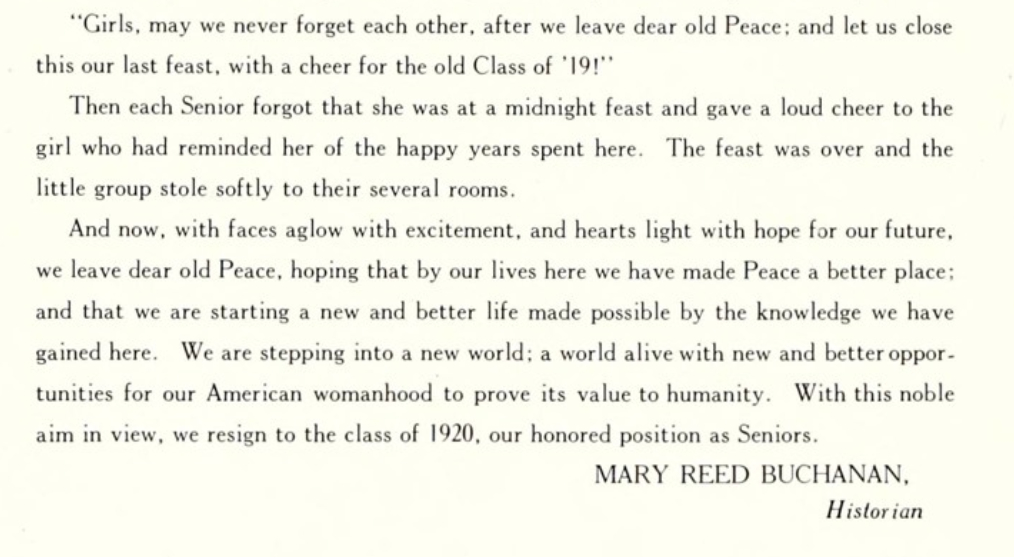
Senior Class History, The Lotus, 1919.
For a look at all of DigitalNCs college and high school yearbooks, click here. Or, to view all memorabilia including scrapbooks, click here.
